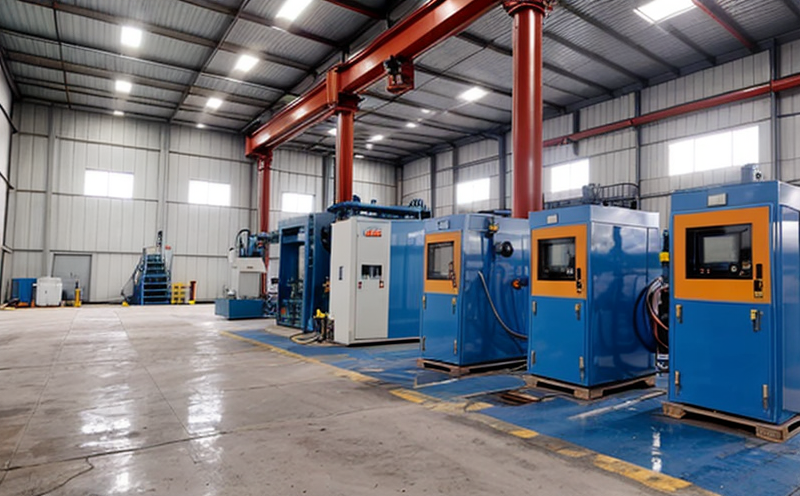BS EN 1936 Density and Porosity of Natural Stone Testing
The BS EN 1936 standard is a crucial document that specifies the methods for determining the density and porosity of natural stones. This testing service plays an essential role in ensuring quality, compliance with international standards, and meeting customer expectations across various sectors including construction, architecture, and industrial mineral processing.
Testing the density and porosity of natural stones is particularly important because these properties significantly influence the performance and durability of stone materials used in construction. For instance, higher-density stones are generally more resistant to weathering and chemical attack, making them suitable for high-demand environments such as coastal or industrial zones. The porosity of a stone also affects its water absorption capacity, which can impact the overall structural integrity.
The standard outlines precise procedures to ensure accurate results. Specimen preparation is critical; it involves cutting representative pieces from the natural stone, ensuring they are free from cracks and voids. Once prepared, these specimens undergo various tests using calibrated equipment such as pycnometers or pressure vessels for density determination.
Porosity testing typically employs water absorption methods where samples are weighed before and after soaking in distilled water under controlled conditions. The difference in weight provides an accurate measure of the porosity level. These tests are not only important for quality assurance but also play a pivotal role in selecting appropriate materials for specific applications.
Compliance with BS EN 1936 is essential for industries like construction and architecture, where performance and safety standards are paramount. This ensures that the products meet both local regulations and international expectations, enhancing consumer confidence and market competitiveness.
- Why is density testing important? Density testing helps in assessing the material's resistance to wear and tear, making it suitable for demanding applications such as flooring or countertops.
- How does porosity affect stone performance? Higher porosity can lead to increased water absorption, which may compromise durability and structural integrity over time.
Why Choose This Test
Selecting the appropriate testing method is crucial for maintaining high-quality standards in natural stone production. BS EN 1936 ensures that the tests conducted are consistent and reliable, which is vital for quality control and compliance.
The test results provide valuable insights into the suitability of a particular stone type for specific applications. This information is indispensable for project managers and engineers who need to make informed decisions about material selection. By adhering to this standard, businesses can enhance their reputation by delivering products that meet stringent quality benchmarks.
Moreover, compliance with international standards like BS EN 1936 opens up opportunities for broader market access. Many countries have specific requirements or preferences regarding the materials used in construction and architecture. Meeting these standards can facilitate smoother trade processes and enhance customer satisfaction.
The testing process is robust and repeatable, ensuring that every batch of stone material undergoes rigorous evaluation. This consistency helps eliminate variability and ensures that each product meets the required specifications consistently.
- How does this test enhance market competitiveness? Compliance with international standards can help businesses attract a wider customer base, thereby enhancing their market position.
- What are the key benefits of using this standard for industrial minerals testing? It ensures reliability and consistency in product quality, which is essential for maintaining high standards across various industries.
Customer Impact and Satisfaction
The implementation of BS EN 1936 density and porosity testing has a direct impact on customer satisfaction by ensuring that the materials used meet stringent quality benchmarks. Quality managers can use these test results to monitor product performance closely, identifying any potential issues early on.
Compliance with this standard also enhances the reputation of businesses involved in natural stone production and processing. When customers see consistent adherence to international standards, they are more likely to trust the products being offered. This trust translates into higher customer satisfaction levels and repeat business opportunities.
The results from these tests provide valuable data that helps in optimizing production processes. By understanding how different factors affect density and porosity, manufacturers can make informed adjustments to improve product quality further. This proactive approach not only satisfies current customers but also sets the stage for future growth by attracting new clients who value reliability and consistency.
- How does this standard impact customer trust? Adherence to international standards like BS EN 1936 builds a strong foundation of trust, which is crucial in maintaining long-term relationships with customers.
- What role do these tests play in optimizing production processes? By providing detailed insights into material characteristics, these tests enable continuous improvement and optimization within manufacturing operations.
International Acceptance and Recognition
The BS EN 1936 standard is widely accepted across Europe and internationally for its rigorous methodology in determining the density and porosity of natural stones. This recognition ensures that the results obtained from these tests are valid and can be trusted by stakeholders worldwide.
Many countries have adopted this standard as a benchmark for quality assurance, which makes it easier for businesses to navigate international markets. The harmonization provided by such standards simplifies regulatory compliance processes, reducing barriers to entry into new markets.
International acceptance of BS EN 1936 also contributes positively to environmental considerations. By using high-quality and durable materials that meet these stringent standards, industries can contribute towards sustainable development goals. The reduced need for frequent replacements due to poor quality ensures longer-lasting structures, thereby minimizing waste generation.
- What are the key advantages of international acceptance? It simplifies compliance processes and facilitates easier market access, enhancing business prospects in a globalized economy.
- How does this standard support sustainable development? By promoting the use of high-quality materials that last longer, it reduces resource consumption and waste generation.





